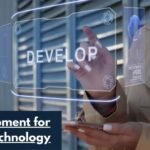Artificial Intelligence (AI) has quietly woven itself into the fabric of our daily routines. Gone are the days when AI felt like science fiction. Today, in 2025, it influences the way we work, shop, travel, and even how we manage our health. While we might not always notice it, AI is everywhere, making life smoother, faster, and often more enjoyable.
From the moment you wake up to the second your head hits the pillow, chances are, you’ve interacted with AI-powered systems multiple times. Whether it’s the smart speaker in your kitchen, a personalized recommendation on your phone, or the seamless way your car navigates morning traffic, artificial intelligence is working in the background. Let’s look at the most practical ways AI is shaping our everyday experiences right now.
Personalized Health and Wellness
AI is having a major impact on health and wellness, making care more personal and proactive. Wearable devices do more than count your steps; they continuously analyze heart rate, sleep patterns, and activity levels. If something unusual is detected, the device can alert you—or even notify your doctor—well before symptoms become serious.
In 2025, AI-powered health apps are capable of reminding you to take medication, suggesting dietary changes, and providing real-time feedback on your physical activity. Some even use image recognition to help users track skin changes or manage chronic conditions. In hospitals, AI assists doctors in reading X-rays and MRIs, leading to faster, more accurate diagnoses. The shift is clear: AI is helping people stay healthier, not just treat sickness after the fact.
Smart Shopping and Personalized Recommendations
Shopping has never been more personal or convenient. AI powers recommendation engines on platforms like Amazon, Netflix, and Spotify, making sure you see products and content tailored to your tastes. In physical stores, AI cameras track inventory, analyze shopper movements, and ensure shelves are restocked efficiently. Some stores now feature cashierless checkout, where AI detects what you’ve picked up and charges your account automatically as you walk out.
Even the products themselves are getting smarter. For instance, a WellPCB circuit board manufacturer is one of the companies using advanced AI-driven automation to improve the production quality of circuit boards that go into everything from smartphones to smart refrigerators. With AI, these manufacturers can identify defects early, optimize designs, and meet the growing demand for custom electronics—all while maintaining cost efficiency.
Seamless Transportation and Smart Vehicles
AI-driven technology is at the heart of the next wave of transportation. Self-driving cars are no longer experimental; in some cities, autonomous vehicles are a common sight. These cars use machine learning and sensor data to navigate traffic, recognize obstacles, and make split-second decisions that help prevent accidents.
But the influence of AI goes beyond self-driving features. Modern vehicles use AI to offer real-time diagnostics, schedule maintenance, and even predict potential breakdowns before they happen. For those in the automotive industry, manufacturers are collaborating with Automotive PCB Manufacturer specialists to ensure the electronic brains of modern cars are reliable and safe. These partnerships are crucial for integrating new sensors, cameras, and navigation systems that make vehicles smarter and more efficient every year.
Enhanced Learning and Education
AI has transformed the classroom experience. In 2025, students will benefit from personalized lesson plans tailored to their learning styles. AI-powered tutors provide feedback instantly, identifying gaps in understanding and recommending extra exercises. Teachers can use AI tools to grade assignments, manage class materials, and analyze student performance data.
Virtual reality (VR) and augmented reality (AR), driven by AI, create immersive learning experiences, from virtual science labs to realistic language practice with AI “conversation partners.” These tools not only make learning more engaging but also ensure no student is left behind. Education is becoming more adaptive and inclusive, thanks to the power of artificial intelligence.
Efficient Workplaces and Digital Assistants
At work, AI is doing far more than just automating repetitive tasks. AI-powered tools help schedule meetings, summarize emails, and sift through large sets of data in seconds. Digital assistants can draft reports, analyze business trends, and even manage customer interactions with a human-like touch.
Companies are using AI to improve hiring practices, monitor workflow, and boost overall productivity. In manufacturing and engineering, AI-driven robots and quality control systems ensure precision and safety, reducing errors and improving efficiency. These improvements allow employees to focus on more creative and meaningful work, rather than routine chores.
Everyday Financial Management
Managing money is easier than ever, thanks to AI-powered financial tools. Banks use AI chatbots to answer questions, help customers transfer funds, and monitor accounts for suspicious activity. Budgeting apps use machine learning to track spending, suggest savings strategies, and even predict upcoming bills.
Investment platforms leverage AI to analyze market trends and offer personalized advice. Consumers gain more control over their finances and feel more confident about their money management skills.
Environmental Impact and Smart Cities
AI is also helping us tackle environmental challenges. Smart city technologies use AI to optimize traffic flow, reduce energy consumption, and manage waste more efficiently. Public transportation systems use predictive algorithms to adjust routes in real time, minimizing delays and emissions.
AI is used in agriculture to monitor crops, forecast weather, and even manage water usage. The result is more sustainable food production and less strain on natural resources.
Conclusion
Artificial intelligence in 2025 is not a distant concept—it is an essential part of daily life. Its influence stretches from the devices in our pockets to the systems that keep cities running smoothly. As AI technology continues to advance, it will bring even more practical benefits to our homes, health, workplaces, and beyond. The possibilities are nearly endless, and our everyday lives will continue to be shaped and improved by the quiet power of artificial intelligence.














